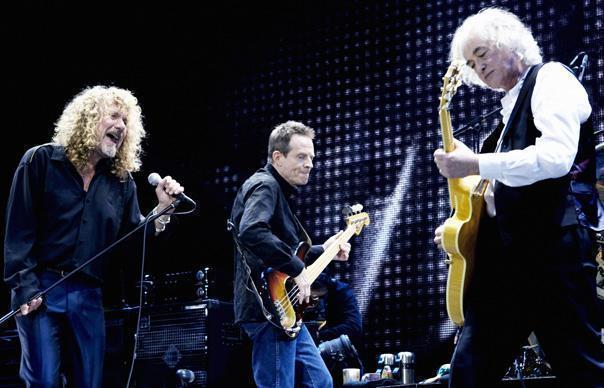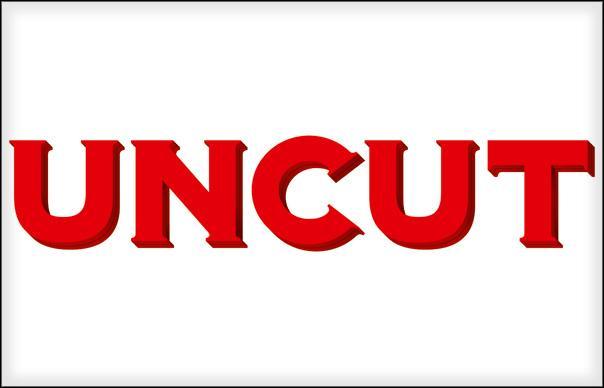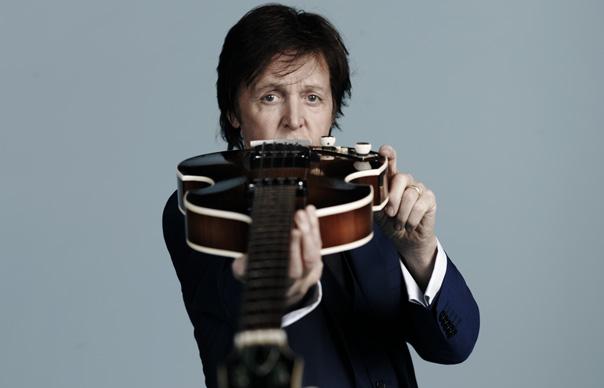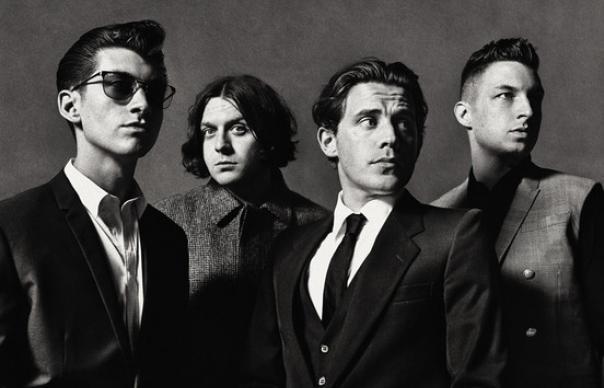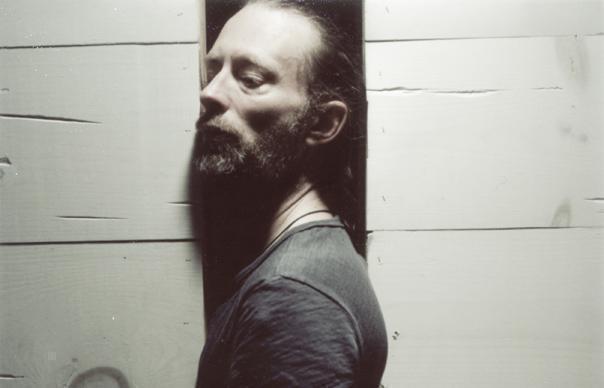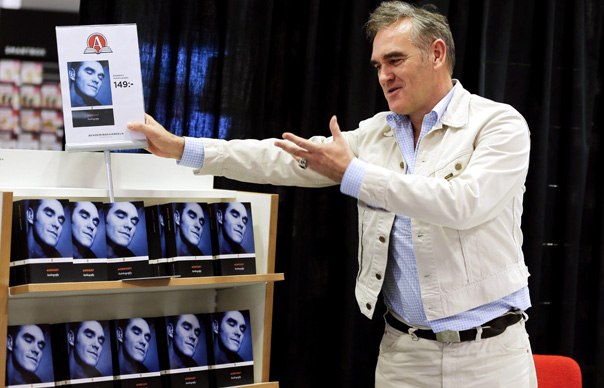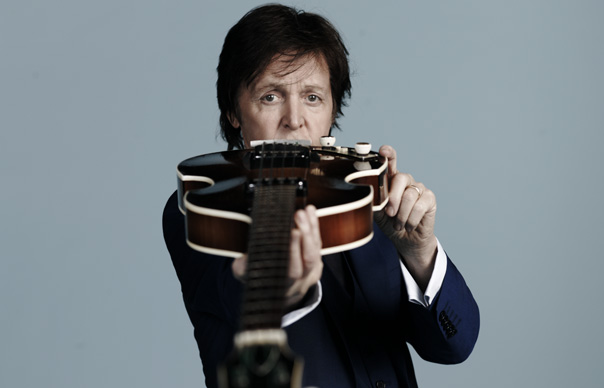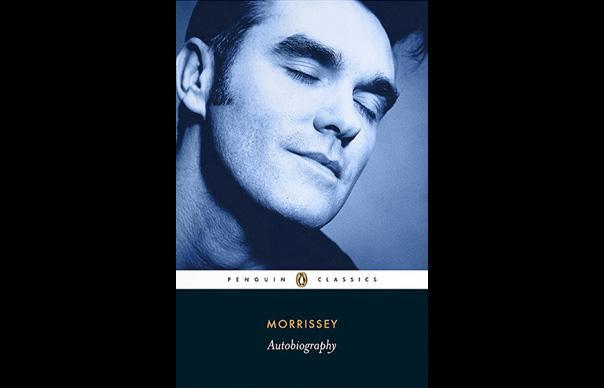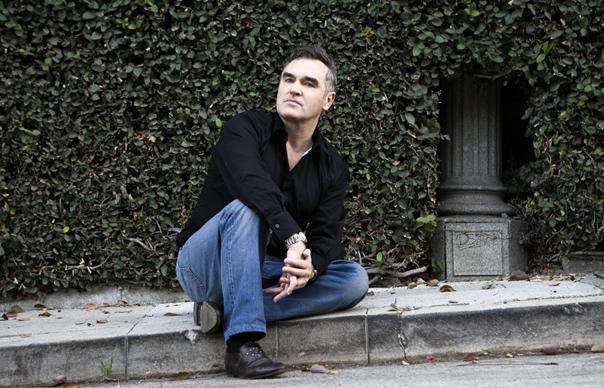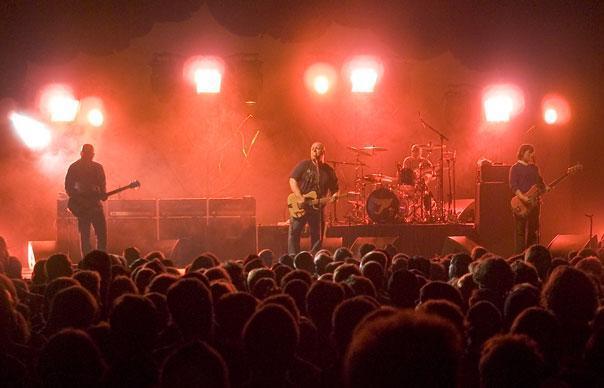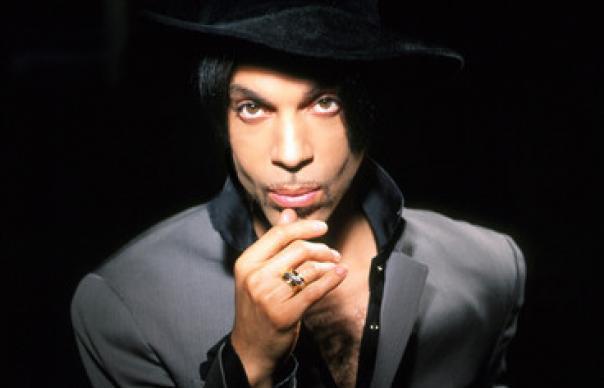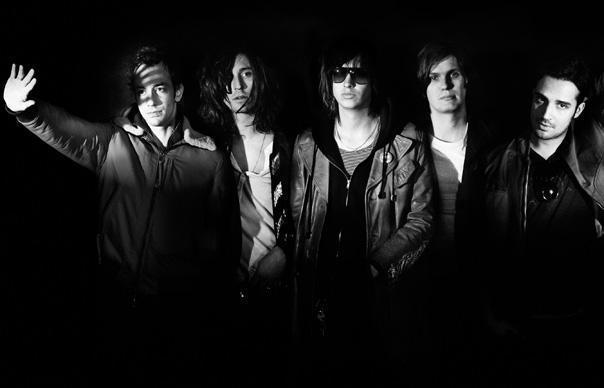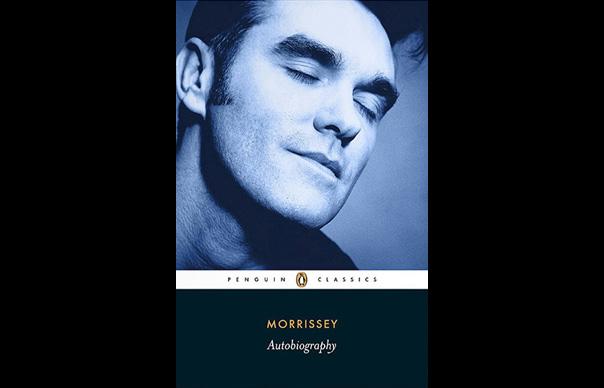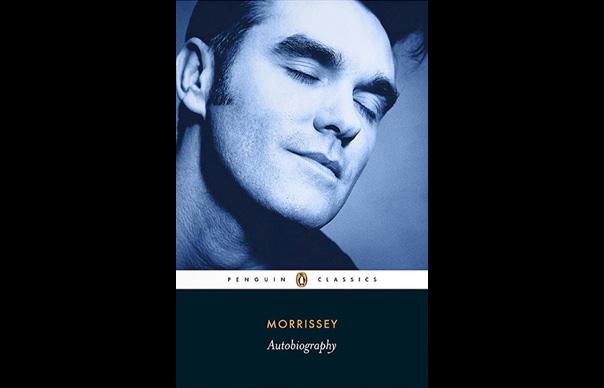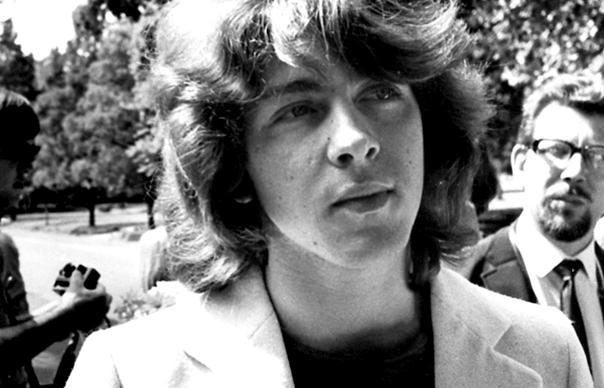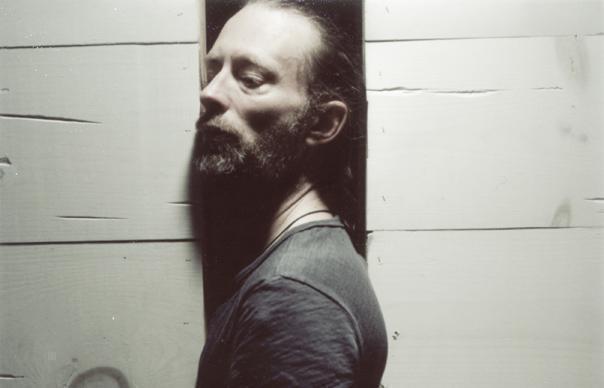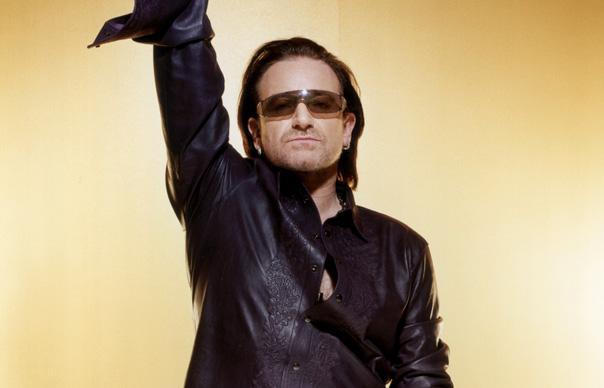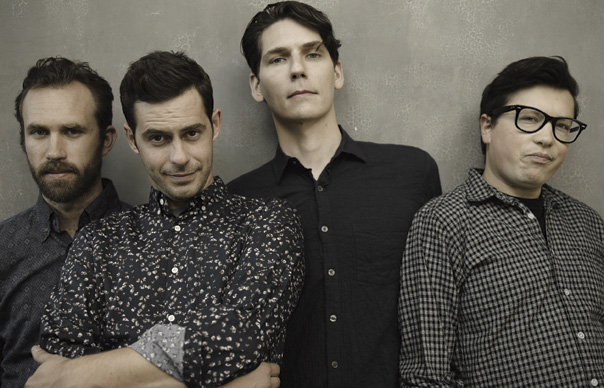Here’s what you might not find in Autobiography… wrestling matches with Vini Reilly! Ouija boards, sauna sessions and extravagant pastries! A secret love of Black Box’s “Ride On Time”!… 25 years on, in this week’s archive feature, from our September 2013 issue, Uncut takes a forensic look at Morrissey’s first acts as a solo artist: Viva Hate, Bona Drag, Kill Uncle, Your Arsenal and Vauxhall And I. The bandmates, songwriters and producers tell all. Story: Rob Hughes
_______________
VIVA HATE
Released: March 1988
Label: HMV
Producer: Stephen Street
Recorded at: The Wool Hall, Bath
Highest Chart Position: 1
Solo debut, issued six months after final Smiths album, Strangeways, Here We Come. Guitarist Vini Reilly added descriptive ambience to songs like “Late Night, Maudlin Street” and “Bengali In Platforms”, while Morrissey scored two major hit singles with “Suedehead” (No 5) and “Every Day Is Like Sunday” (No 9).
STEPHEN STREET, producer: Although it wasn’t long after Strangeways…, there was some trepidation, because this was pastures new and there was no guarantee that it would work. When Morrissey and I first started thinking about who could be involved, I wanted a technically good guitar player. But most of all I wanted someone who was completely different, style-wise, from Johnny Marr. Vini comes from Manchester too, so I thought that would help bring a mutual understanding.
VINI REILLY, guitarist: Recording with Morrissey was one of the best experiences of my life. I think the fact we were both Irish gave us something in common; we understood each other and there were lots of similarities. And we’d both had difficult childhoods and the rest of it. It forged a friendship between Morrissey and me, and a mutual respect that was based on him taking the piss out of me.
ANDREW PARESI, drummer: There was a terrific forward momentum throughout the recording. It was as if we were recording it on the Titanic and had half an hour to get it done. It had that kind of feel. And in that environment I think you can spark some very interesting things.
STREET: There was a tension in the sense that we were all worried about how we were going to follow in the footprints of The Smiths, but at the same time I think Morrissey found it refreshing to work with a new bunch of people. Andrew Paresi had a very wicked sense of humour and there was a lot of extremely witty, camp comedy flying backwards and forwards. It was actually fun times. I think he felt at home.
PARESI: Morrissey has a very acute understanding of funny, because he has a very firm grasp of the absurd realities of life. And you’ll find that view in all of his songs. He just had this fantastically humorous, mordant outlook on life. Plus he had a really calm, quiet, good-natured demeanour. It was a complete relief from the gallery of pop knob-ends that I’d been working with. At that time there was still this post-Live Aid, boozy, snorting, dick-wad kind of sensibility. Morrissey was the complete opposite. He could just as easily have been an ECM jazz musician, very esoteric.
REILLY: Me and Morrissey used to have wrestling matches. He was very physically together, very strong. We’d find a corridor, suddenly it would go off and no-one knew what to do. Or me and Mozza would be in the sauna, stark-bollock naked. Everybody else was too stupid about everything to do something like that, but Morrissey liked it: “What’s all the big fuss about?” Morrissey was trapped by a lot of people’s attitudes and stereotypes.
STREET: Every now and then Morrissey would come up with a reference. I remember him once referring me to Joni Mitchell. I didn’t realise until that point that Morrissey was a huge fan of hers. And that’s what led me to write “Late Night, Maudlin Street”. He told me: “I want a long, rambling track that loops round and round, à la Joni Mitchell.” That was the way Johnny Marr had worked with him. You had to come up with a backing track that wasn’t just a bunch of chords shoved down. I remember the night he did the vocals and just being absolutely stunned by the quality of the lyric and melody.
REILLY: There was a riff in my head for “Late Night, Maudlin Street”. It had a very ambient, hypnotic vibe to it. I remember it being late at night in the studio and Morrissey did a vocal that we didn’t expect. It made the hairs on the back of my neck stand up, because it was exactly the kind of vibe I was feeling. It was so perfect. That was why I’d always wanted to work with Morrissey, because I knew he had this instinctual sense of melody and atmosphere. Whenever he got up to do a vocal performance he’d absolutely astound you, because it changed from being my jumble of free-form guitar. You never knew what he was going to do.
_______________
BONA DRAG
Released: October 1990
Label: HMV
Producer: Stephen Street / Clive Langer / Alan Winstanley
Recorded at: The Wool Hall, Bath / Hook End Manor, Reading
Highest Chart Position: 9
Initially conceived as the follow-up to Viva Hate, Bona Drag instead morphed into a superior collection of singles (“Piccadilly Palare”, “November Spawned A Monster”) and killer B-sides (“Disappointed”, “Will Never Marry”, “Hairdresser On Fire”).
STEPHEN STREET: We made Viva Hate, then went back into the studio for the B-sides to “Everyday Is Like Sunday”. But the session was problematic in that there were quite a lot of mood swings from Vini Reilly at this point. So when we regrouped later in ’88, we decided not to use Vini this time. Instead it was like, ‘How about using Craig Gannon, Mike and Andy [Rourke]?’ Enough time had passed by then, which got me thinking even more that The Smiths were going to re-form.
MIKE JOYCE, drummer: We’d tried carrying on [as The Smiths], but it was that thing about having one quarter of what you love taken away from you. Then I got a call from Morrissey about a year later, asking me if I wanted to do some more work. He pretty much gave me carte blanche, so we got Andy and Craig and it felt natural.
STREET: I’m not a keyboard player, but for “Ouija Board, Ouija Board” it was Morrissey’s request to do something more like Sparks. Then, when I was no longer on the scene, Langer and Winstanley did their version.
CLIVE LANGER, co-producer: It very nearly didn’t happen at all. We’d been put together by the record company. I wasn’t a big Smiths fan and Morrissey wasn’t a Langer-Winstanley fan, though he liked Madness. So on the first day we were messing about with “Ouija Board…” and it just wasn’t sounding great. I didn’t want to put any pressure on him, so I said: “We don’t have to carry on with this.” And he said: “Fine, maybe we should just do this then leave it.” So we went to the pub. Then when we got back, the band had run through the tracks and they actually sounded pretty good. So we decided to make a start at some sort of relationship.
KEVIN ARMSTRONG, guitarist: I was quite open-minded about Morrissey. Obviously I realised that he’s an extremely sensitive, bright, intelligent artist. But on a personal level, I wasn’t really let in. I do remember Morrissey bringing in a record and us all dancing in the large studio room to “Ride On Time” by Black Box. It was his favourite record of the time.
LANGER: During the sessions, Morrissey made it clear that he was open to any of us giving him backing tracks. I wrote “November Spawned A Monster” on the piano and it sounded a bit Stones-like. He said he liked it, then did a vocal. When I realised what the subject matter was, I had this weird tune I’d been fiddling with and said: “How do you feel about me putting this in the middle as the ‘birth’?” And Morrissey said, “Let’s try it.” Then he suggested using Mary Margaret O’Hara, so the whole thing was very organic. She was completely bonkers, unfathomable, really.
ARMSTRONG: The other person who visited those sessions was Joan Sims, with Morrissey being a big Carry On fan and all that. She liked a glass of brandy and a good story. Suggs was there for a while, too. He did a voiceover on “Piccadilly Palare”.
LANGER: Morrissey had Madness come down for dinner, and also Vic and Bob one night. He’d say: “Clive, could you invite so-and-so down?” And when they’d come, he’d have dinner, then disappear. So I’d have to entertain them, which was interesting because I didn’t really know why they were there.
ARMSTRONG: Morrissey employed a chef at great expense. I think she was billed as Princess Margaret’s chef, so I thought it’d be an opportunity to eat really good food. But it was largely cream and pastries. Morrissey was always eating toast, but then there were these heavy, hearty, rich vegetarian meals. It wasn’t the worthy diet I expected.
PARESI: When you were having breakfast with Morrissey and something had got to him – whether it’s a criticism or a passionate feeling about something – he would look up and stare straight at you. It was right into your soul. You could actually feel your guts gripped. That was pretty impressive. What I remember is that sense of someone who was a beautiful savant, if you like.
ARMSTRONG: Morrissey had the haunted master bedroom at Hook End Manor. It’d belonged to David Gilmour, but originally it was the Bishop of Reading’s place or something, from the 16th Century. It’s got a long history and there were creepy vibes in the house. I think Morrissey got quite into that. We did actually play ouija one night. All sorts of things were spelt out. Alcohol and various things had been taken, so I can’t really remember. But we were in a darkened room with a candle.
_______________
KILL UNCLE
Released: March 1991
Label: HMV
Producer: Clive Langer & Alan Winstanley
Recorded at: Hook End Manor, Oxfordshire
Highest Chart Position: 8
Morrissey’s most underrated solo album, marked by fragile song-poems, atypical textures (piano, strings, vibraphone) and a belated rockabilly rush that pointed the way to the more cohesive Your Arsenal.
MARK NEVIN, co-writer: I was in the studio with Kirsty [MacColl], recording Electric Landlady, and got a call about Morrissey’s manager wanting to speak to me. He just said to send him some music. So I sent these tapes off, addressed to ‘Burt Reynolds’, as I was told to write on the envelope. Then a postcard reply came, saying: “It’s Perfect.” [See below] I started to send more and I’d get these fantastic replies, first as postcards, then as brief letters in that spidery Morrissey scrawl. When it came to record at the studio, I was driving along and he was coming out of Hook End on his pushbike, exactly like one of the lookalikes from the “Stop Me If You Think You’ve Heard This One Before” video. It was surreal.
LANGER: We weren’t interested in musical fashions at the time, like the whole Manchester thing. That’s why Kill Uncle got slated, because it didn’t fit in and didn’t sound like The Smiths. But I thought that was its strength. Each song had a different story and feel. I wanted to pull out the colour in each song, without making it sound too over the top.
NEVIN: It was a bizarre experience. There was no sit-down or deciding what we were going to do. One reason was that Morrissey was so private and shy and wasn’t forthcoming. So nobody really took the lead on it. Clive did quite a lot of different things than I’d originally imagined. Where I’d perhaps put an electric guitar, he’d put a piano, which was very much his style from the Madness thing. “Asian Rut” was a good example of trying to bring in different instruments. There’s vibraphone, Indian violin and double bass bows. All these instruments hadn’t been heard on a Morrissey record before.
PARESI: To use a parallel from the animal kingdom, it’s as if Morrissey went into a chrysalis stage and emerged out the other side as a rockabilly butterfly. Essentially that album was the changeover. It was like the driver going from the local train to the express.
NEVIN: “Our Frank” was the first one we recorded. Clive and Alan [Winstanley] put a load of slapback echo on Morrissey’s voice, so it was real Elvis style. Bedders [bassist Mark Bedford] and I were having this first-day-at-school giggly moment. The words of the song were very funny: “I’m gonna be sick all over your frankly vulgar red pullover”. So we were laughing at that and also because we were nervous and it was Morrissey. The whole thing escalated into hysteria. I think Morrissey was delighted by the effect he had on us.
LANGER: We used to socialise a bit. All of us went to see the Buzzcocks one night and we went bowling once. Morrissey’s pretty good at sports. We used to play football a lot and he was quite aggressive.
NEVIN: Around the dinner table there’d be lots of chat going on. Although Morrissey often wouldn’t say anything, which could be very intimidating. He’d sit there silently presiding over our nervousness and awkwardness. I felt a bit like a new kid at boarding school.
PARESI: I remember one twilit night at Hook End in autumn. A lot of apples had fallen in the orchard and Morrissey picked some of them up. Then he walked down to the wire fence and started feeding the cows. They were really enjoying the apples and making a loud noise, which made Morrissey burst out laughing. It was absolutely the most touching thing.
LANGER: Morrissey and I used to go on really long walks in the forest. I felt like I got pretty close to him and lived in his world for a year or so. And it’s not a logical world. He lives by his own rules and you have to live those rules as well when you’re with him. In a way it’s a bit sad, because it was an intense experience, then when you finished working with him, that was the end. It feels like you’ve made a friend, then you don’t hear from them again.
_______________
YOUR ARSENAL
Released: July 1992
Label: HMV
Producer: Mick Ronson
Recorded at: Utopia, London / The Wool Hall, Bath
Highest Chart Position: 4
With Bowie’s one-time lieutenant as producer, and the arrival of what was to become his most trusted lineup (Boz Boorer, Alain Whyte, Gary Day), Morrissey embraced glam and his newfound love of rockabilly.
NEVIN: Due to prior commitments, I didn’t do the Kill Uncle tour, but Morrissey said: “Let’s do the next album anyway, I’d like us to write together.” But in the end there were only two songs of mine on Your Arsenal. The rest had been scrapped. I think it was Morrissey’s ‘up yours’ to me [for not going on tour]: you dumped me and now I’m getting you back. That was the implication.
NEVIN: Originally the Your Arsenal songs were all mine. He called me up and asked who we should get to produce it. I suggested Mick Ronson. At the time, Mick Ronson hadn’t been seen or heard of for a long time. Morrissey said: “What a great idea, can you get hold of him?” So I put the word out to different people I knew. Then one day Mick Ronson called me from New York: “I hear you want to talk to me about producing Morrissey. What’s he like?” I said: “He’s Morrissey, y’know, The Smiths.” And Mick just went: “What are they like?” He’d never even heard of them. Then he said he was coming to London in a few days, so Morrissey asked if I could get him to come round to my house in Camden the following Friday. A week later, I opened my front door and there was Mick Ronson, looking like he’d been frozen in time since the Ziggy Stardust tour, with this blond mullet. He sat down in my front room, then Morrissey turned up, all quiff and glasses, with [assistant] Peter Hogg. And they just sat on the opposite sofa looking at each other. It was very awkward, but thankfully Peter Hogg was gobby. At one point he turned to Ronson and said: “So Mick, did David ever try to shag ya?” And Mick went: “Bloody tried to a few times. Never bloody succeeded!” I don’t think we even spoke about the record. It was all so bizarre, then somewhere down the line it was arranged that Mick was going to produce it.
MORRISSEY: He asked me what kind of LP I wanted to make, and I said, “One people would listen to for a very long time,” and he said, “Oh, all right then,” as if I’d asked him to put the cat out.
SPENCER COBRIN, drummer: Mick Ronson was a lovely fella, completely understated, unassuming, soft-spoken. He was also very sick at the time. His spirit came out when he picked up the guitar. I remember sitting next to him at the console when he put down some eerie e-bow guitar on “Seasick, Yet Still Docked”. I noticed his fingertips were gnarly and calloused. I could see his passion for music by looking at those fingers of his.
MORRISSEY: I’d always pushed the vocal against the structure of the melody, and I didn’t know how long this could work. Mick said, “You haven’t even started.” He’d learnt all writing systems, tunings and chord combinations the best way – by ear, which is usually the secret of great music. But he took me aside one night and said, “You realise your drummer can’t actually play?” and I said, “Yes. But it isn’t always a problem.” Mick could have used this as a stick to beat me with, but his only instinct was to save all of us – drummer included – from the snake pit. There wasn’t a single moment when Mick wasn’t patient and understanding. We all absolutely loved him.
NEVIN: I did go to the studio to do “I Know It’s Gonna Happen Someday”, which is credited as being produced by Mick, but he wasn’t there. He had cancer and was undergoing treatment at the hospital, so I did all that with the band. Although there was a very strange moment when Mick did come back and started listening to the song. It got to the end where it’s doing that really obvious “Rock’n’Roll Suicide” rip-off and he looked at me as if to say, “Are you having a laugh?”
COBRIN: All I can remember of Your Arsenal was nerves and feeling totally under the gun. There was no real instruction given by Morrissey, or if there was it was probably something cryptic. On Southpaw Grammar [1995], for example, the directive for “The Boy Racer” was: “It sounds too much like Waitrose; needs to be more Harrods.” So we’d listen to the rough demos and flesh out the tracks in the studio. I’ve no idea what instruction Morrissey gave to Mick in terms of production. But I think just having Mick there with his sensibilities was probably enough to shape the record.
MORRISSEY: Mick had zero ego and cared only for the common good – he was without a shred of preciousness given the incredible turns his life had taken. Furthermore, he was blond-haired, blue-eyed handsome – still a shy smile. It struck me how he would have been magnificent for The Smiths’ first LP, but any mention of a top-notch producer and Rough Trade would drop like ’30s TB patients at the thought of having to pay for something.
_______________
VAUXHALL AND I
Released: March 1994
Label: Parlophone
Producer: Steve Lillywhite
Recorded at: Hook End Manor, Oxfordshire
Highest Chart Position: 1
Arguably Morrissey’s finest solo work, in which he addresses the vagaries of a post-Smiths world in tones that veer from poignant and reflective to caustic and downright belligerent.
STEVE LILLYWHITE, producer: I’d mixed “Ask” for The Smiths, but I’d never met Morrissey until this album. He told me he’d booked the studio, so I phoned him back with a list of all Chris Dickie’s credits, to convince him that this was the guy to use as engineer. And Morrissey just went: “Steve, stop. How long is his hair?” I said it wasn’t very long, so he went: “Good. That’s all I need to know.” So Chris Dickie got the job because he didn’t have long hair!
JONNY BRIDGWOOD, bassist: There was a general air of excitement from day one. The feeling was that we were about to create something that was quite special. Everyone was keen and enthusiastic.
WOODIE TAYLOR, drummer: I learnt so much from Steve Lillywhite, who has the incredible gift of being able to draw the best performances from all those he works with. I think it certainly helped that there was a huge amount of new blood injected into the album. On the first sessions that he produced, Chris Dickie engineered, Danton Supple assisted, Jonny Bridgwood played bass, I drummed and Boz Boorer wrote the music – we had a lot to prove. Morrissey was singing better than ever, too.
LILLYWHITE: Morrissey looks at a song not as verse-chorus-verse, but as a story. He didn’t think like musicians do or really care about the nuts and bolts of it. I remember him coming in one day and we played him a track. He just looked at me and said, “Steve: Shepherd’s Bush 1964, The Who.” Then he just walked out.
BRIDGWOOD: Morrissey would come into the control room, have a listen and give his seal of approval, or not. Unlike other singers, he doesn’t interfere in the musical process, although he’ll steer it in a direction he’s comfortable with.
LILLYWHITE: Boz [Boorer] and Alain [Whyte] would send Morrissey cassettes of music and when he had enough, he’d go: “OK, it’s time to make a record.” Then he’d send the songs back that he liked and they’d have song titles next to each one. So we’d record the tune without knowing what the vocals or lyrics were. I couldn’t wait to do one called “Lifeguard Sleeping, Girl Drowning”. When Morrissey eventually came to do the vocals, he had the song in a completely different way, so his chorus would sometimes start halfway through the verse. I did three albums with Morrissey, of which Vauxhall And I was by far the most satisfying. It was certainly a crowning moment for me.
BRIDGWOOD: When Morrissey did his vocals, we all cleared out for a few days and let him get on with it. So when we came back we didn’t know what to expect. The vocal on “Lifeguard…” sounded totally different, but once you heard it, the whole thing made perfect sense.
LILLYWHITE: Morrissey would spend a lot of time in the bath or in his bedroom. We had this dice game that we used to love playing and he would occasionally join in. But he was always on the outside looking in. He’d watch as all these other things went on, just observing.
BRIDGWOOD: I remember Woodie and me sitting at the back of the control room and Morrissey was talking to us. He asked how I got into playing bass. I told him I just loved the sound of it and he said: “Yes, but it’s not the kind of thing that you want to do from the age of five, is it?” I thought that was very funny.
LILLYWHITE: There was a manager who looked after the biggest male artist of the time. I won’t say who it was, but this guy wanted to manage Morrissey. So he flew from Los Angeles to Heathrow and got a car to drive him all the way to Hook End Manor for this meeting. Morrissey glanced at him as he came in, then basically rushed off and disappeared. Two hours passed and there was no sign. It was all a bit embarrassing and eventually this guy left. In the end, Morrissey appeared from the pub. He literally said he didn’t like the look of his hair. He’d only glimpsed the back of his head and that meeting never did happen. Aesthetics for him are everything.


